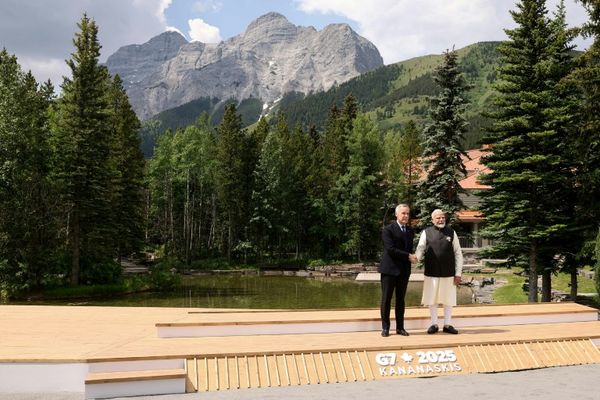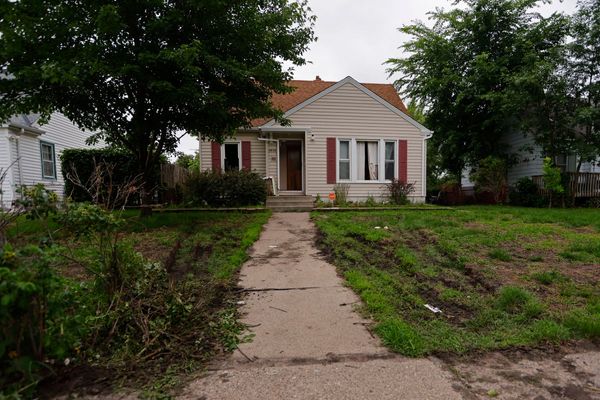
It’s what many would call the ultimate beginning: when the lights go down, we see a young tree bearing a shiny apple. There’s a man and a woman. He invites her to take a bite. We watch her eye the fruit before she bites in, and so the story starts …
Or is this actually the ending? After all, that sweet little sapling now picked bare isn’t long for this world, and is there anything more final than death? It’s actively painful to watch as the ensemble tear the tree apart, moving with an odd, shared gait and communicating in garbled speech. Those allusions to biblical paradise are gone in a flash, and so, it seems, is hope: a moment later, garbage rains from the sky.

Are we not drawn onward to new erA, an experimental theatre work by renowned Belgian company Ontroerend Goed (recently seen at the Under the Radar festival in New York), rewards your patience. The first half is stilted: the ensemble’s movements are overly mannered and precise, their limited dialogue beyond comprehension (occasionally, they say “wow”). There were a few early walkouts on opening night, as well as a host of uncomfortable murmurs and giggles, as this new world landed on us, desolate and difficult to understand.
But there’s a code breaker hidden in the work’s title: Are we not drawn onward to new erA is a palindrome. Director Alexander Devriendt has taken this literary device and translated it into the theatrical lexicon, using stagecraft, precision and a staggering amount of detailed thought to create a play that can be read forwards and backwards. The result is both intellectual and otherworldly – performance as poetry.
The specific mechanics of how a play can be a palindrome is best left unspoiled, but suffice it to say that we will return to the scene with the couple, the apple and the tree, and learn it is both a beginning and an end. If that eerie lilting dialogue sounds familiar on your way to the play’s turning point, lean into that: you may be able to work it out.

The play may inevitably suffer at first from its daring conceit and impatient audiences, but it has a point to make. As we move with the ensemble through this barren world (Philip Aguirre’s scenography and Jeroen Wuyts and Seppe Brouckaert’s design guides us through bare stages flecked with props, a world of smoke and, later, a shimmering video effect that seems to split timelines in half), we understand what is unfolding: a comment and a warning about living in a world damaged by climate change.
Sitting there watching a world in ruins – after a wave of smoke obscures the stage and wafts deep into the audience (you won’t regret masking up for this one) – there’s a rare moment of direct address. Cast member Charlotte De Bruyne turns to us in an aha moment that feels like a glitch in the system, as though she’s speaking to us from out of time. This is where we are now, she says of this damaged world onstage, littered with garbage and overseen by a giant golden idol statue of just Some Guy in a T-shirt and jeans (beware the tech bros you deify). The deed and damage can’t be undone, she says. So what will we do with what’s left?
This is when the 75-minute play becomes magic. Those big theatrical swings start to pay off, and the play reads itself from the opposite direction. Now, a narrative emerges and we can eke out meaning from those early scenes, but it’s still as unclear as life ever is: are we seeing a revolution? An attempt to heal the world, made by characters willing to sacrifice comfort and safety for change? Or are attempts to reverse destruction futile? It’s open to interpretation – or perhaps it’s just hard to find forward momentum in a palindrome.
We’re living in an ouroboros of crisis right now, but maybe there’s hope to be found in a time of constant change. Are we not drawn onward to new erA doesn’t offer up answers, but it sees us all caught in a race against time, and a fight against entropy. The play is not an SOS, but an act of witnessing; it is with us, looking for a way to replant dead trees.
Are we not drawn onward to new erA runs at Sydney festival until 20 January, before visiting Perth festival from 21-25 February







